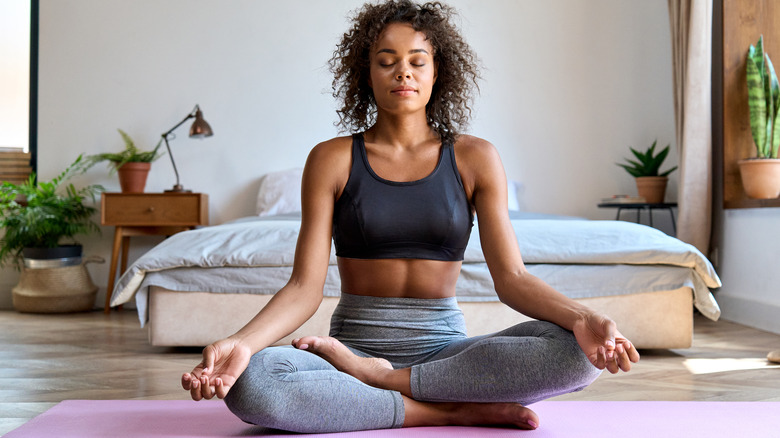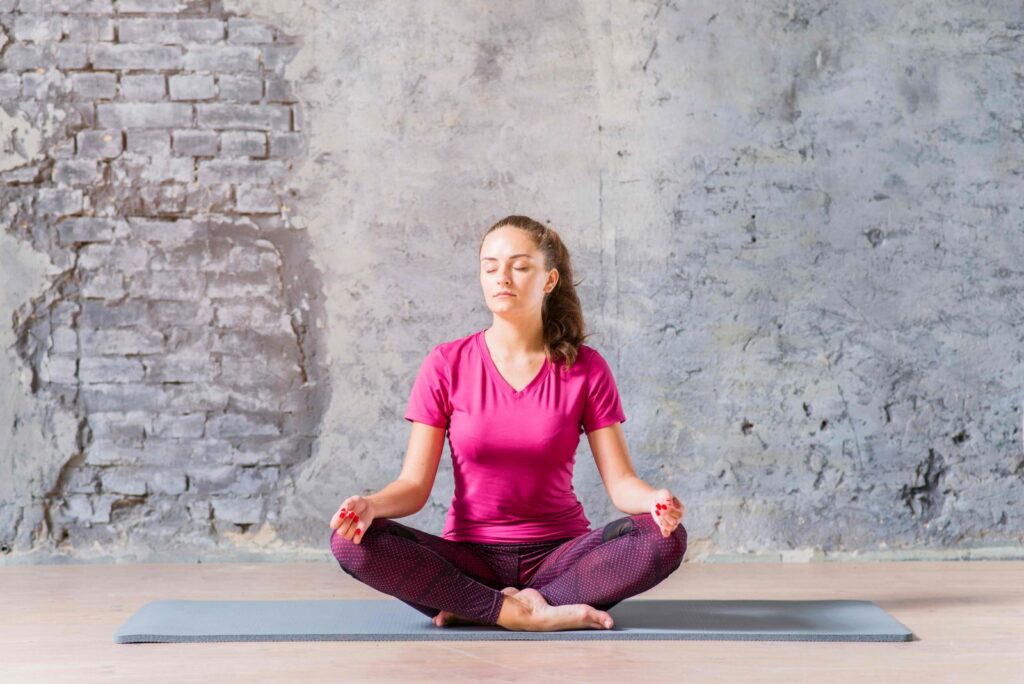The Natural Way to Fall Asleep Faster: 10 Minutes, No Pills, No Equipment

The Natural Way to Fall Asleep Faster: 10 Minutes, No Pills, No Equipment
Have you ever laid in bed for hours, tossing and turning, waiting for sleep that just won’t come? You’re not alone. In today’s fast-paced world, quieting the mind and easing the body into sleep can feel like an uphill battle. While we often turn to screen time, late-night snacks, or sleep aids, the answer might be much simpler—and healthier.
Believe it or not, just a few minutes of gentle movement and mindful breathing before bed can prepare your mind and body for deep, uninterrupted sleep. These bedtime exercises aren’t physically demanding, don’t require equipment, and can be done in the quiet comfort of your bedroom. Let’s explore a few simple, effective practices that can help you drift off naturally and wake up refreshed.
1. Child’s Pose (Balasana)

This deeply calming yoga pose invites your body to relax by gently stretching your lower back, hips, and thighs. To do it:
- Kneel down and sit back on your heels.
- Bend forward, resting your forehead gently on the floor.
- Extend your arms in front of you or keep them relaxed at your sides.
This posture signals to your nervous system that it’s time to wind down. Practicing it for a few minutes can help release tension built up during the day.
2. Bee Breathing (Bhramari Pranayama)

Bhramari is a breathing technique known for its instant calming effects on the mind. Here’s how you do it:
- Sit comfortably with your eyes closed.
- Inhale deeply.
- While exhaling, make a gentle humming sound like a bee—similar to the sound of the letter “M.”
- This vibration helps release stress, quiet inner chatter, and soothe your senses—ideal just before bedtime.
3. Deep Breathing

Often overlooked, deep breathing is a powerful way to reset your nervous system. It slows your heart rate, lowers blood pressure, and prepares your body for rest.
Try this simple method:
- Inhale slowly through your nose for a count of 4.
- Hold the breath for 4 seconds.
- Exhale gently through your mouth for a count of 6.
- Repeat for a few minutes.
The key is to breathe slowly and steadily, allowing each breath to anchor you in the present moment.
4. Meditation in Lotus Pose (Padmasana Dhyana)

Meditation doesn’t require any special skills—just a quiet moment to yourself. Sitting in Padmasana, or any comfortable cross-legged position, helps you center your thoughts.
- Close your eyes.
- Sit up straight and focus on your natural breathing.
- Let thoughts pass without judgment; keep bringing your focus back to your breath.
- Just 10–15 minutes of stillness can make a remarkable difference in how quickly you fall asleep and how deeply you rest.
- Consistency is Key – Just 10–15 Minutes Before Bed
You don’t have to do all of these exercises at once. Choose the one that feels right for you—or combine two of them. Practicing for even 10–15 minutes each night can gradually train your body and mind to wind down effortlessly. Over time, you may find that sleep comes more naturally, and your nights become more restful.
Remember: These practices are simple and safe for most people. However, if you have existing health conditions or trouble sleeping that doesn’t improve, consult with a healthcare professional.












